
Transcription
HARLAN RICHARDS
March 7, 2013
Scandalous Wisconsin Judges
How good are Wisconsin Judges? Are they ethical? Impartial? Follow Wisconsin's Code of Judicial Ethics?
I recently filed a grievance against Dane County Judge David T. Flanagan - a judge with whom I previously had no meaningful contact. Let me tell you the story.
I am serving a life sentence and have been parole-eligible since 1996. In 1999, the judge who presided over my jury trial wrote a letter for the parole commission stating he had no objection to my release if it could be safely accomplished. This letter helped me transition to minimum security in 2002 and then to a work release center in 2005.
But in 2001, when right-wing radical Scott Walker became governor, the parole commission increased my defer based on my current offense and prior criminal record. This in turn resulted in my removal from a work release center and placement back in medium security.
I filed a certiorari action for judicial review of the denial of release on parole arguing that after I spent 19 months on work release, drove over 30,000 miles unsupervised all over north-western Wisconsin and spent years living in a work release center there was no longer any evidence to support the finding that my release would pose an unreasonable risk to the public. I also relied heavily on the trial court judge's recommendation.
I also filed a lawsuit against the parole commission asserting that their recently-enacted rules violated the ex post facto clause of the U.S. Constitution (Richards v. Nagle, 12 CV 2482). This action was assigned to Judge Flanagan, who replaced my trial court judge in Dane County when my judge retired shortly after he wrote the letter in support of my release.
Every time I am scheduled to see the parole commission, they send a notice addressed to my original trial court judge to notify him of the upcoming review. Over the years, numerous notices have been sent to the Dane County Circuit Court and some have been returned without comment, signed by Judge Flanagan.
At my last parole hearing I was surprised to learn that Judge Flanagan, while also acting as the presiding judge in the Nagle lawsuit, sent a written comment to the parole commission stating "Do not place this person on parole!" I first learned about the comment at the parole hearing and disputed the authenticity of the document. The signature was illegible and the parole commission member stated that she believed it was written by my trial court judge - which I deemed impossible because he had retired a decade earlier. Still, the parole commission relied on the comment to deny me release on parole.
I obtained a copy of the comment and compared the signature to a procedural order signed by Judge Flanagan in the Nagle case and found that the signatures matched. Judge Flanagan submitted the comment.
I immediately wrote him a letter, contacted the chief judge and filed a grievance with the state judicial commission.
Judge Flanagan did not preside over my murder trial, had no previous contact with me, no personal knowledge of me or the offense for which I am imprisoned and had disregarded numerous notices from the parole commission for years. Why did he submit a comment telling them not to release me on parole? Why now? This was done at the same time he was presiding over a lawsuit I had pending against the parole commission. At the very least, Judge Flanagan showed clear bias against me yet failed to recuse himself the action until I confronted him in my letter. I think there was more to what he did.
I believe that he was contacted by someone in the parole commission's office and asked to submit a comment in opposition to my release on parole. My perfect conduct record and time spent out in the community, coupled with the letter from my trial court judge, irrefutably establishes that I am not an unreasonable risk to the public if I am paroled. The parole commission cannot dispute my conduct record so the only way they have to undermine my suitability for release on parole is by superseding the 1999 letter from my trial court judge with a more recent letter opposing my release.
Judge Flanagan recused himself from the Nagle action after I wrote to him but did not answer my letter nor did he rescind his comment to the parole commission. The statute which authorizes judicial comments to the parole commission was intended to permit a judge involved in the original criminal case to give his opinion on whether to parole a defendant. My judge came out in favor of release. The statute was not intended to be used by an uninvolved 3rd party to block an otherwise suitable candidate from getting a parole.
This issue is slowly moving through the court system. I expect a cover-up and most likely will be denied relief. But you never know, miracles still happen. I may find a judge willing to do the right thing.
Meanwhile, my best recourse is to expose Judge Flanagan's actions to public scrutiny and hope that somebody comes forward to speak out against this unconscionable behavior.
As a final note, after I finished the rough draft of this blog and before I typed it, I received a response from the Judicial Commission:
"The Commission's examination of this matter has resulted in a determination that there is insufficient evidence of misconduct within the jurisdiction of the Commission to warrant further action or consideration by the Commission.
This matter has accordingly been closed and Commission proceedings on it remain strictly confidential."
If I was a member of the Judicial Commission and engaged in a cover-up of malfeasance by a sitting judge, I'd want to keep it confidential as well.
In 1940, the United States Supreme Court opined in the case of Chambers v State of Florida, 309 U.S. 227, 60 S.Ct. 472, 479 (1940):
"Under our constitutional system, courts stand against any winds that blow as havens of refuge for those who might otherwise suffer because they are helpless, weak, outnumbered, or because they are non-conforming victims of prejudice and public excitement."
Courts have gone from being the protectors against oppression to becoming the oppressors.
Other posts by this author
|
2021 jun 25
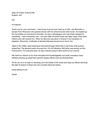
|
2021 may 25
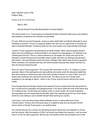
|
2021 apr 23
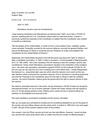
|
2021 feb 19
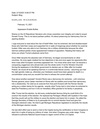
|
2021 feb 17
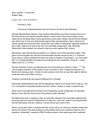
|
2021 feb 15
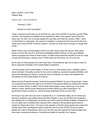
|
More... |
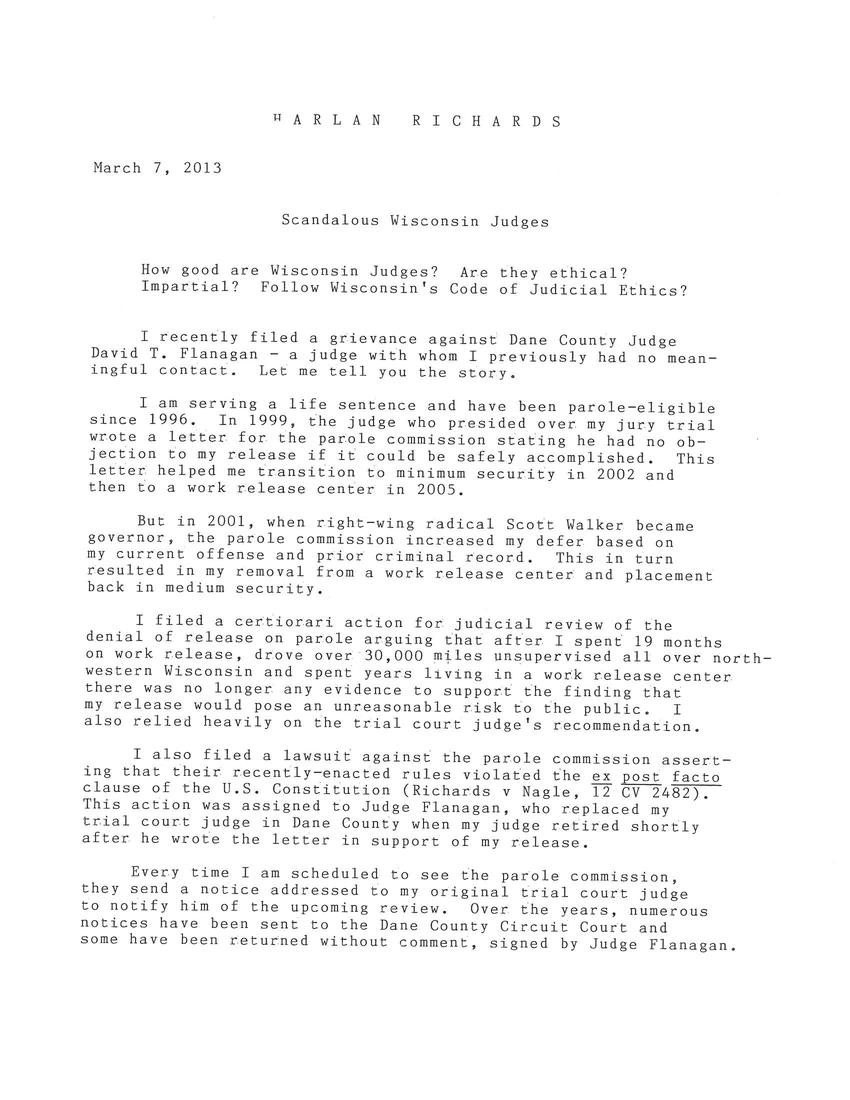
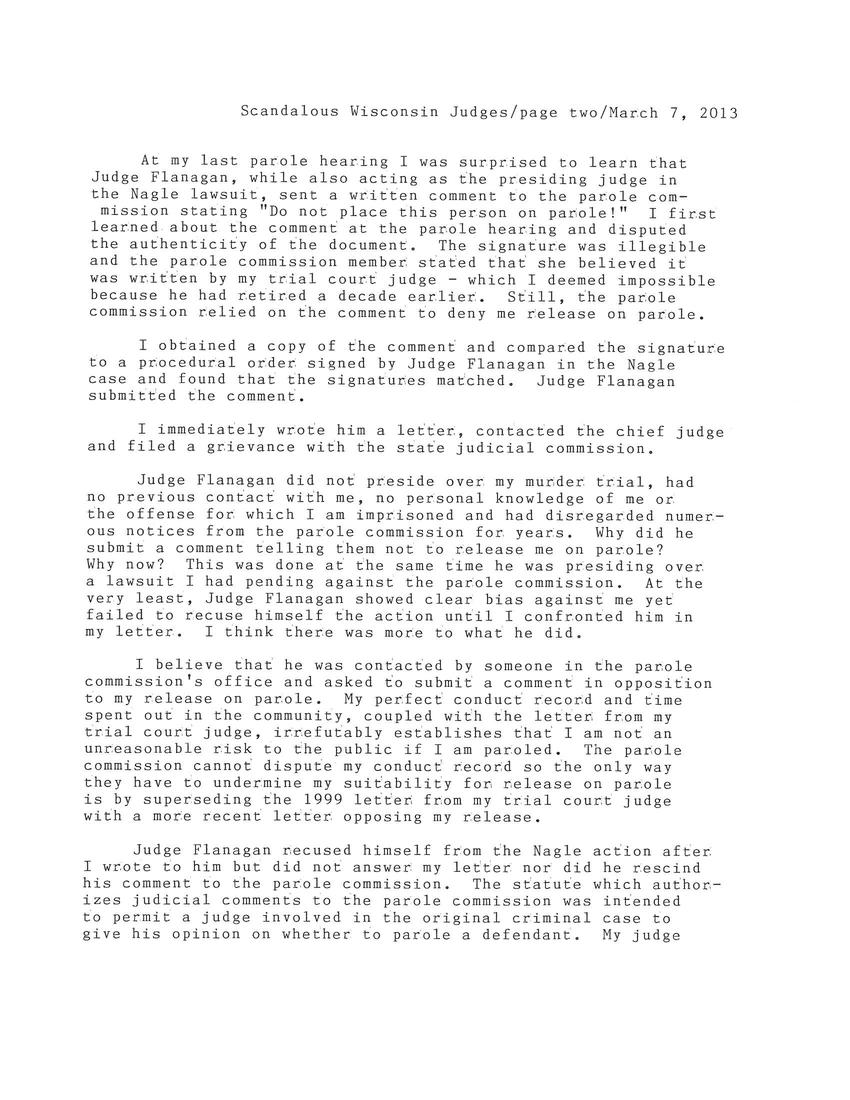
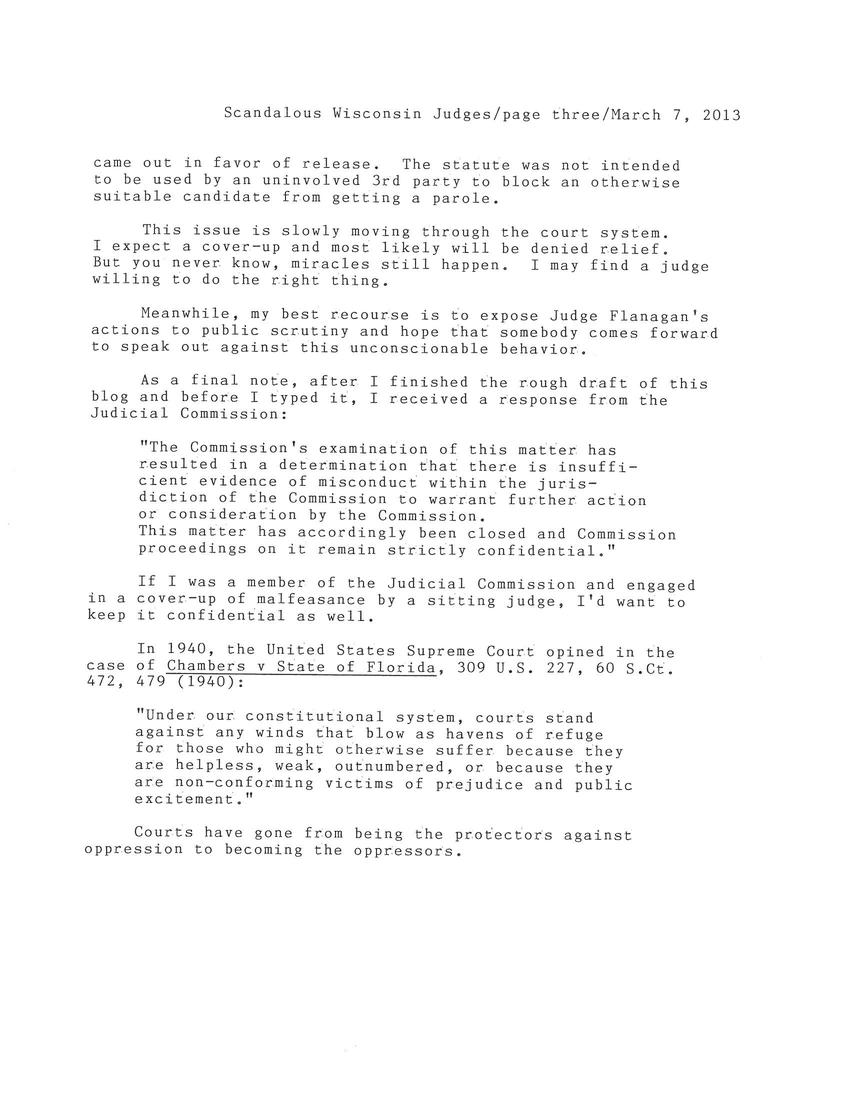

Replies